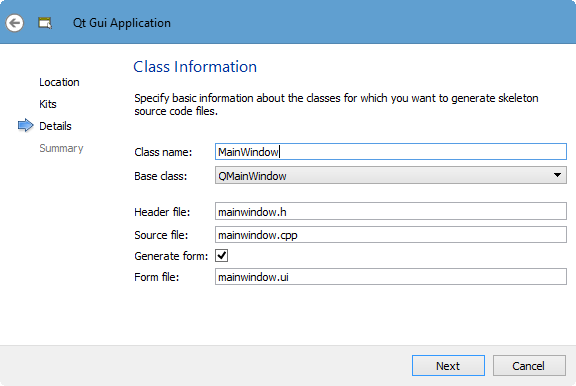Qt5 Slots Connect
Introduction
- Qt5 Signal Slot Connection
- Qt5 Slots Connect Online
- Qt5 Slots Connection
- Qt5 Slots Connect Games
- Qt Slot Connect
If i create a class from a base class with virtual slots, the slots never get called with the new connect-flavour. If i use the old connect-syntax, the slot gets called. What could be the problem? @ class BaseClass: public QObject public slots: virt. Qt 5 continues to support the old string-based syntax for connecting signals and slots defined in a QObject or any class that inherits from QObject (including QWidget) connect (sender, SIGNAL (valueChanged (QString, QString)), receiver, SLOT (updateValue (QString))); New: connecting to QObject member. Comparing mem and time required to create N objects each with 1 connection, N from 100 to 10000000 Measuring for 100 connections # connects mem (bytes) time (sec) Raw: 100 0 0.0015 Pyqt Slot: 100 0 0.000495 Ratios: nan 3 Measuring for 1000 connections # connects mem (bytes) time (sec) Raw: 1000 0 0.0138 Pyqt Slot: 1000 0 0.0035 Ratios. When editing a connect the NEW Qt5 Style, the autocompletion does not limit the signal element to reals signals. Any member method is proposed. Not just signals. The same holds for slots. This is not helpful for the novice user. This all creates a DLL called syncro.dll, which builds, loads and runs without problem. Connect(sender, SIGNAL(valueChanged(QString,QString)), receiver, SLOT(updateValue(QString)) ); What really happens behind the scenes is that the SIGNAL and SLOT macros will convert their argument to a string. Then QObject::connect will compare those strings with the introspection data collected by the moc tool.
Remarks

Official documentation on this topic can be found here.
A Small Example
Signals and slots are used for communication between objects. The signals and slots mechanism is a central feature of Qt and probably the part that differs most from the features provided by other frameworks.
The minimal example requires a class with one signal, one slot and one connection:
counter.h
The main sets a new value. We can check how the slot is called, printing the value.
Finally, our project file:
The new Qt5 connection syntax
The conventional connect syntax that uses SIGNAL and SLOT macros works entirely at runtime, which has two drawbacks: it has some runtime overhead (resulting also in binary size overhead), and there's no compile-time correctness checking. The new syntax addresses both issues. Before checking the syntax in an example, we'd better know what happens in particular.
Let's say we are building a house and we want to connect the cables. This is exactly what connect function does. Signals and slots are the ones needing this connection. The point is if you do one connection, you need to be careful about the further overlaping connections. Whenever you connect a signal to a slot, you are trying to tell the compiler that whenever the signal was emitted, simply invoke the slot function. This is what exactly happens.
Here's a sample main.cpp:
Hint: the old syntax (SIGNAL/SLOT macros) requires that the Qt metacompiler (MOC) is run for any class that has either slots or signals. From the coding standpoint that means that such classes need to have the Q_OBJECT macro (which indicates the necessity to run MOC on this class).
The new syntax, on the other hand, still requires MOC for signals to work, but not for slots. If a class only has slots and no signals, it need not have the Q_OBJECT macro and hence may not invoke the MOC, which not only reduces the final binary size but also reduces compilation time (no MOC call and no subsequent compiler call for the generated *_moc.cpp file).
Connecting overloaded signals/slots
While being better in many regards, the new connection syntax in Qt5 has one big weakness: Connecting overloaded signals and slots. In order to let the compiler resolve the overloads we need to use static_casts to member function pointers, or (starting in Qt 5.7) qOverload and friends:
Multi window signal slot connection
A simple multiwindow example using signals and slots.
There is a MainWindow class that controls the Main Window view. A second window controlled by Website class.
The two classes are connected so that when you click a button on the Website window something happens in the MainWindow (a text label is changed).
I made a simple example that is also on GitHub:
Qt5 Signal Slot Connection

mainwindow.h
mainwindow.cpp
Qt5 Slots Connect Online
website.h
website.cpp
Project composition:
Consider the Uis to be composed:

Qt5 Slots Connection
- Main Window: a label called 'text' and a button called 'openButton'
- Website Window: a button called 'changeButton'
Qt5 Slots Connect Games
So the keypoints are the connections between signals and slots and the management of windows pointers or references.